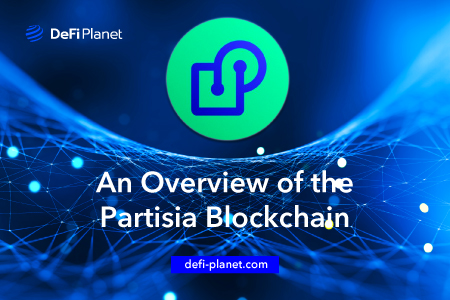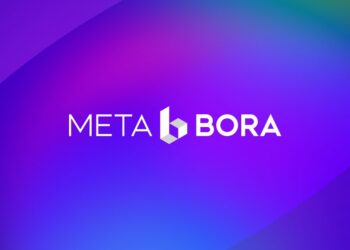Newer blockchains are typically designed to solve Ethereum’s scalability issues, as well as other elements of the blockchain trilemma.
Every blockchain network hosts innovations that must be highly scalable, decentralized, and secure, hence the need to solve the blockchain trilemma.
The Partisia blockchain is one of the newest generations of networks that is revolutionizing the modus operandi.
What is the Partisia Blockchain?
The Partisia blockchain is a distributed data ledger created to provide a haven for Web3 platforms. Developers can use the network to develop protocols and decentralized apps for various purposes.
Though the Partisia blockchain is a Layer 1 chain, it differs from the others in that it is a privacy-facing network designed for both public and private use. This network is powered by Zero-Knowledge (ZK) Computations. The architecture is designed to strike a balance between privacy and transparency. This is made possible through zero-knowledge computations.
In contrast to Ethereum, the most popular smart contract chain, Partisia is very scalable. The network employs sharding functionalities to achieve this. Sharding keeps the network from becoming congested, resulting in faster transactions and lower gas fees. Because of sharding, the chain grows in size as the network’s traffic increases.
When a new shard is incorporated into the network, it increases throughput, which improves transaction speed per second.
According to the Partisia website, each new shard adds 1000 transactions per second. As a result, the network now has unlimited transaction bandwidth.
Partisia, like most chains, has its native token, MPC. Validators utilize it to bind the network, while users can choose to delegate or stake their tokens to a node for rewards. Holding MPC tokens grants users access to the numerous features available on the blockchain.
Users earn the token as an incentive for verifying transactions.
Partisia Blockchain and the Blockchain Trilemma
The Partisia blockchain is resolving the blockchain trilemma, a buzzword in the blockchain space. The blockchain trilemma consists of three critical difficulties that all networks must address: decentralization, security, and scalability.
Vitalik Buterin invented the term to define the basic elements that enable every functional blockchain to function.
Scalability implies that the blockchain’s capacity should increase in tandem with network traffic.
Scalability issues plague Ethereum 1.0, which means that the network’s capacity does not increase as more people use it. This causes network congestion, resulting in slow transaction speeds and high transaction fees, commonly known as “gas fees.”
Ethereum is expected to upgrade to Ethereum 2.0, which will employ a Proof-of-Stake consensus mechanism instead of Proof-of-Work and will support sharding. Sharding will improve scalability, boost transaction speed, and reduce gas fees.
The Partisia blockchain employs sharding, which allows transactions to be validated swiftly and at low fees. When a new shard is introduced to the network, it increases the chain’s throughput by 1000 Transactions-Per-Second (TPS). Partisia has made it easy for validators to run network nodes and participate in transaction validation.
Validators are critical to the chain’s operation, making it a highly decentralized network.
Their job description involves increasing chain security by binding their tokens to the network and accepting tokens from holders who want to stake them. They are also required to perform complex calculations. Validators are compensated with digital assets.
According to Partisia’s official website, the chain now has 91 validators and a total block count of 464,810. The Partisia blockchain is equipped with cryptographic and economic security features. The cryptographic feature minimizes the likelihood of fraud occurring in the network, while the job of the oracle nodes is to verify that staking occurs effectively in the chain.
Partisia’s Consensus Mechanism
Partisia utilizes a three-part consensus mechanism. The Fast Track committee consensus mechanism is made up of baker nodes, which are the network’s regular nodes. The Fast Track consensus committee aims to ensure that consensus is reached swiftly and that no committee has more than a thousand baker nodes.
Two-thirds of all Baker nodes must agree for consensus to be reached via this mechanism. This function is achieved through the use of an optimistic protocol. In this system, a chosen proposer from a committee is responsible for creating new blocks, while the other nodes are responsible for validating the blocks made by the single aforementioned node.
Once a certain number of blocks have been created, a proposer’s term expires. When this happens, a new proposer is selected.
Proof-of-Verification is the second aspect of the consensus mechanism. Proof-of-Verification, or PoV, is a method of ensuring that once verifiers validate blocks, every transaction in that set of blocks has been validated.
The PoV consensus mechanism was chosen to prevent validators from just signing off on a block because they assume the proposer is “genuine.”
The third is an incentive program, which is intended to ensure network connectivity by rewarding the process.
Partisia’s Sharding Capability
Sharding is a critical component of this network’s architecture, and it is intended to improve scalability, resulting in faster transaction speeds and lower gas fees.
Shards collaborate with other independent shards to validate transactions.
Each shard is designed to be independent to maximize efficiency.
To ensure that every committee is monitored, proof of committee change is conducted regularly.
Partisia’s Node Operators
Node operators are “the basic decision-making units,” where the Partisia Blockchain defines the possible set of decisions to be made by the network.”
There are four types of node operators: reader nodes, baker nodes, ZK nodes, and oracle nodes.
• Reader nodes
This node’s purpose is to monitor network activity and inform users about what’s going on in the Partisia chain. Because this feature is open to the public, users do not need to participate in a whitelist event before becoming a reader node. There are no incentives associated with this node because there are no minimum criteria, and reader nodes are not required to stake tokens.
• Baker nodes
Baker nodes are responsible for ensuring that basic governance and consensus tasks are completed. Users who want to become Baker nodes must first participate in a decentralized whitelist event.
The fees that users pay for using the chain’s basic features serve as incentives for this node. Users must stake at least US $10,000 in MPC tokens to become a Baker node. This criterion is subject to modification.
• ZK Nodes
This node governs MPC and ZK computations, and a whitelist event must be held before users can become ZK nodes.
Nodes are compensated with MPC and ZK computation fees.
Fees generated from basic blockchain activities are not included in the incentives.
The minimum criterion is set at USD 25,000 in MPC tokens and is subject to modification.
• Oracle nodes
They are in charge of the oracles that are linked to Partisia. A whitelist event is held, and nodes are rewarded with fees from oracle services, excluding basic blockchain activities. To become an oracle node, users must stake at least USD 100,000 in MPC tokens.
Partisia’s Smart Contract Functionality
The Partisia blockchain is compatible with smart contracts, allowing developers to create different types of smart contracts to achieve various objectives. Developers can create a variety of smart contracts, such as system, public, and private smart contracts.
A smart contract is designed to govern accounts, generate different types of contracts, and modify the network’s consensus system.
The second type of smart contract is the public smart contract. Developers can customize their public smart contracts to behave similarly to a regular smart contract. They follow the same rules as regular smart contracts in that they can be deployed, execute different commands, and be deleted from the network if required.
A private smart contract is the third type of smart contract on this network, and it operates via ZK computations.
How Zero-Knowledge (ZK) Computations Work With Partisia Blockchain
As observed in other privacy-oriented blockchains, zero-knowledge (ZK) computations are not limited to the Partisia blockchain.
Networks with ZK Computation provide a higher level of privacy than conventional blockchains. People often believe that a network must choose between confidentiality and decentralization, yet implementing the aforementioned technology allows both aspects to coexist in a chain.
A network exhibits two distinct qualities when utilizing ZK computations. It collaborates with ZK nodes all over the world to ensure the chain’s effectiveness. It also improves computational transparency.
In Conclusion,
- The Partisia blockchain addresses the blockchain trilemma of security, scalability, and decentralization.
- The Partisia blockchain has a consensus mechanism that comprises of multiple aspects.
- The Partisia blockchain tackles scalability issues with a sharding solution.
- Privacy is the watchword of the Partisia blockchain, which is enabled using ZK computations.
- There are different types of node operators.
If you would like to read more news articles like this, visit DeFi Planet and follow us on Twitter, LinkedIn, Facebook, and Instagram.





















